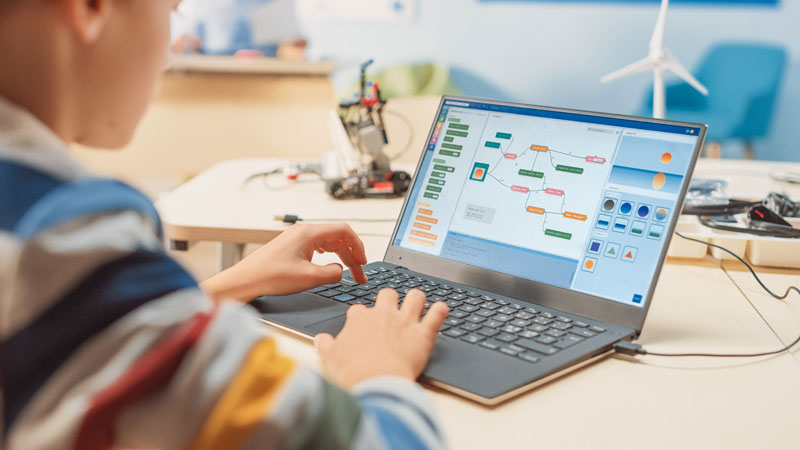Science, Technology, & Engineering
Overview
STE (Science, Technology & Engineering Programming)
The Manville School Science, Technology, & Engineering programing reflects the current content standards of the Massachusetts Curriculum Frameworks. Throughout our Elementary and Middle/High School, we offer highly differentiated curricula encompassing topics that include Life Science, Earth & Space Science, Physical Science, Technology/Engineering, Biology, Environmental Science, Health, and Physics. Manville’s teaching methodology provides access to science phenomena in fun and meaningful ways.

Middle/High School
Manville's combined Middle and High School offer comprehensive science programming for students. The foundational 8th grade course is General Science, which is NSTA approved, and with interactive simulations. Middle School students also participate in an onsite science field trip like Energy Quest's 40-foot inflatable house that provides opportunities for them to practice energy efficiency using iPad technology.
In High School, students complete a lab-based Biology course which provides strong preparation for the High School Biology MCAS exam. Students next explore Environmental Science. Beginning in Fall 2025, Manville will offer a course in Physics.
Manville's high school science instruction is uniquely tailored to meet students’ learning needs. An integral component involves hands-on investigations in our newly renovated STEM Lab focusing on the Science and Education Practices (SEPs), such as the extraction of DNA from saliva or the design of optimal water filtration devices. Sometimes these explorations take students to community sites, such as Biogen's Colab, where students explore current applications of Biotechnology in state-of-the-art facilities or at the Waterworks Museum to discover complex engines and pump systems.
Elementary School
Our Elementary School students explore beginning General Science and Engineering concepts, which are designed to address their developmental learning needs. Our youngest scientists use Amplify Science which was funded by the Gates Foundation and earned Ed Report's "all-green status". It incorporates the multisensory Do-Talk-Read-Write-Visualize approach which was developed by University of California Berkley's esteemed Lawrence Hall of Science. Here, students take on various roles such as pinball engineers, meteorologists, aquarium scientists and light/sound engineers, etc.
